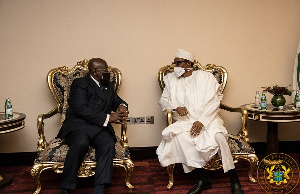Prayer for Food Security: Nigeria’s Agriculture Ministry Sparks Controversy

An internal memo circulating within Nigeria’s Ministry of Agriculture, urging all staff to engage in prayer and fasting to help the nation achieve food security, has ignited a wave of controversy across the country.
The memo, reportedly issued by the head of the ministry’s Human Resources department, called on employees to attend a “solemn prayer session” and observe a fast for the next three consecutive Mondays. This directive quickly drew sharp criticism from many Nigerians, who questioned the government’s genuine commitment to addressing the escalating cost of food and the broader issue of food insecurity.
In response to the backlash, the agriculture ministry released a press statement on Saturday, attempting to downplay the controversy. The ministry clarified that the call for prayers was not an official policy to combat food insecurity, but rather an initiative intended to boost staff well-being. The statement drew parallels to existing welfare programs, asserting, “Just as the already existing monthly aerobic exercise and establishment of the gymnasium in the ministry are for physical fitness,” and “as the regular medical check-ups of staff are for their health.”
However, the public’s skepticism remains high. Nigeria is currently grappling with its worst economic crisis in a generation, largely attributed to significant policy changes introduced by the new government since 2023. According to UN estimates, at least 4.4 million people in the country lack sufficient food. The relentless increase in the price of basic food staples, such as yams, which quadrupled in price within a year, was a primary catalyst for nationwide cost-of-living protests last year.
Critics view the appeal for divine intervention as a stark indication that the government is shirking its fundamental responsibility to its citizens and adopting a fatalistic approach to a pressing national crisis. Online reactions to the call for prayer have ranged from exasperated suggestions that the ministry’s leadership should be replaced with religious figures like pastors and imams, to blunt declarations simply stating, “Nigeria is a joke.”
Conversely, government officials maintain that they have implemented numerous concrete measures to tackle the crisis. These efforts reportedly include providing farmers with over 1,000 tractors and distributing more than two million bags of fertilizer, aiming to boost agricultural output and stabilize food prices.
Despite these assurances, the controversy highlights the deep public frustration with the economic hardship and the perceived disconnect between government actions and the lived realities of ordinary Nigerians struggling with hunger.
Source: http://thepressradio.com





